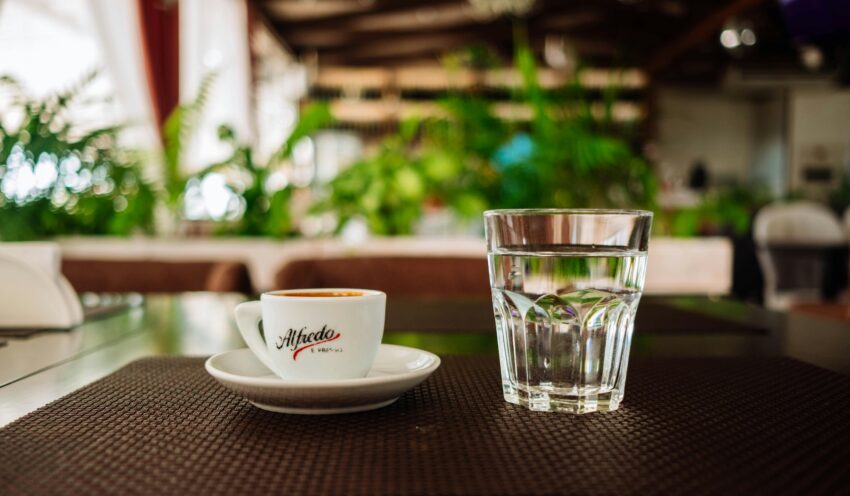It takes a lot of factors coming together to run a successful restaurant. One critical aspect is efficiency. From prepping food to washing dishes and packaging orders, even the smallest workflow disruptions can ripple into frustrated kitchen crews and unhappy customers. An underrated culprit? Poor-quality water.
Water quality plays a bigger role than most people think. It affects taste, appliance life, and how hard your staff has to work. Install a solid filtration system and some efficient gear, and suddenly your kitchen runs smoother—and cheaper.
Why Water Deserves More Attention
Water is everywhere in a kitchen. It’s used for cooking, brewing, and cleaning. From mopping floors to make them clean for diners to preparing the soup of the day, water is essential.
However, depending on your location, that water might contain sediment, chlorine, dissolved minerals, or even traces of heavy metals. That damage doesn’t happen overnight. It builds slowly. Over time, unfiltered water can wreak havoc on expensive commercial kitchen appliances and reduce the efficiency of your equipment.
“Poor water quality doesn’t just dull flavors—it can quietly damage expensive equipment behind the scenes,” explains Shu Saito, HVAC & Filtration Expert and CEO of All Filters LLC. “Restaurants with hard water or excessive chlorine in their supply often see more frequent breakdowns and higher maintenance bills.”
Filtering out contaminants isn’t only about cleanliness; it’s a strategic investment in the longevity of your restaurant.
Filtered Water = High-Quality Foods and Beverages
Photo by cottonbro studio on Pexels
Details matter. And, as any restaurant manager or chef will tell you, the little things are extremely important in the food service industry. Boiling pasta, steaming vegetables, baking bread, brewing coffee—your restaurant’s water directly affects the quality of each process.
When chlorine, iron, or sediment are in your water, they negatively affect the taste of your dishes and drinks. Additionally, chlorine can impact how dough ferments and remove the rich color of your vegetables by bleaching them.
One of the easiest ways to improve beverage and food quality is by filtering water at the point of use. For instance, reverse osmosis water filters remove up to 98% of total dissolved solids, providing a clean base for every drink and dish.
Keeping Expenses Low
Every restaurant comes with expenses, including labor, food, and equipment costs. Beyond taste and presentation, water quality has a major impact on the equipment your restaurant relies on each day, including your dishwashers, coffee machines, ice makers, and steam ovens.
Unfiltered water can cause scale buildup, mineral corrosion, and clogged spray nozzles. These problems can lead to:
- Increased labor for cleaning and descaling
- Making service calls more often
- Shortened equipment lifespans
- Higher energy costs
It’s often shocking to many business owners that switching to a stronger filter or a reverse osmosis system can reduce scale buildup dramatically. Catalytic carbon doesn’t only remove chlorine, but it also handles chloramines effectively. In turn, your dining facility benefits from equipment that lasts longer with fewer issues.
The Relationship Between Water and Cooking Efficiency
Photo by vedanti on Pexels
Whether you run a small mom-and-pop restaurant or a franchise with locations nationwide, today’s kitchens are full of high-performance cooking equipment. From commercial induction ranges to combination ovens, many advanced appliances require a supply of consistent and high-quality water, which is possible through reverse osmosis or iron water filters.
Unfiltered water and the minerals and particulates it contains can cause many problems. Minerals cling to sensors. Gunk builds up on heating elements. Suddenly, what should be a 400-degree sear drops to 375, and your timing’s off. That’s not just annoying—it’s expensive. Pairing adequate water filtration with modern cooking equipment like high-performance cookers ensures:
- Faster cooking times
- More reliable appliance performance
- Less equipment downtime
How Water Filters Typically Pay for Themselves Quickly
While a commercial water filtration system may seem like a frivolous expense, the long-term savings are often considerable and outweigh filter-related expenses. Having thoroughly filtered water can mean fewer maintenance calls and appliance replacements. It can also mean better-tasting beverages and foods.
Restaurants that adopt commercial filtration systems typically notice:
- Reduced cleaning product and detergent usage
- Cleaner dishes (and fewer glassware complaints)
- Fewer water-related equipment issues
What’s Right for Your Restaurant?
Restaurants come in all shapes and sizes—and so do their kitchens and water systems. A little coffee shop probably doesn’t need anything more than a filter under the sink. But if you’re running a busy pizza place or a large-scale kitchen, you’re likely better off with a system that covers the whole building.
Here’s the thing: water quality matters more than most folks realize. This business is tough. One bad review? It lingers. A dishwasher that breaks on Friday night? That’s a whole weekend lost. When margins are paper-thin and regulars keep the lights on, reliable water isn’t optional. It’s essential. A little investment now could save you a whole lot of trouble later on.

